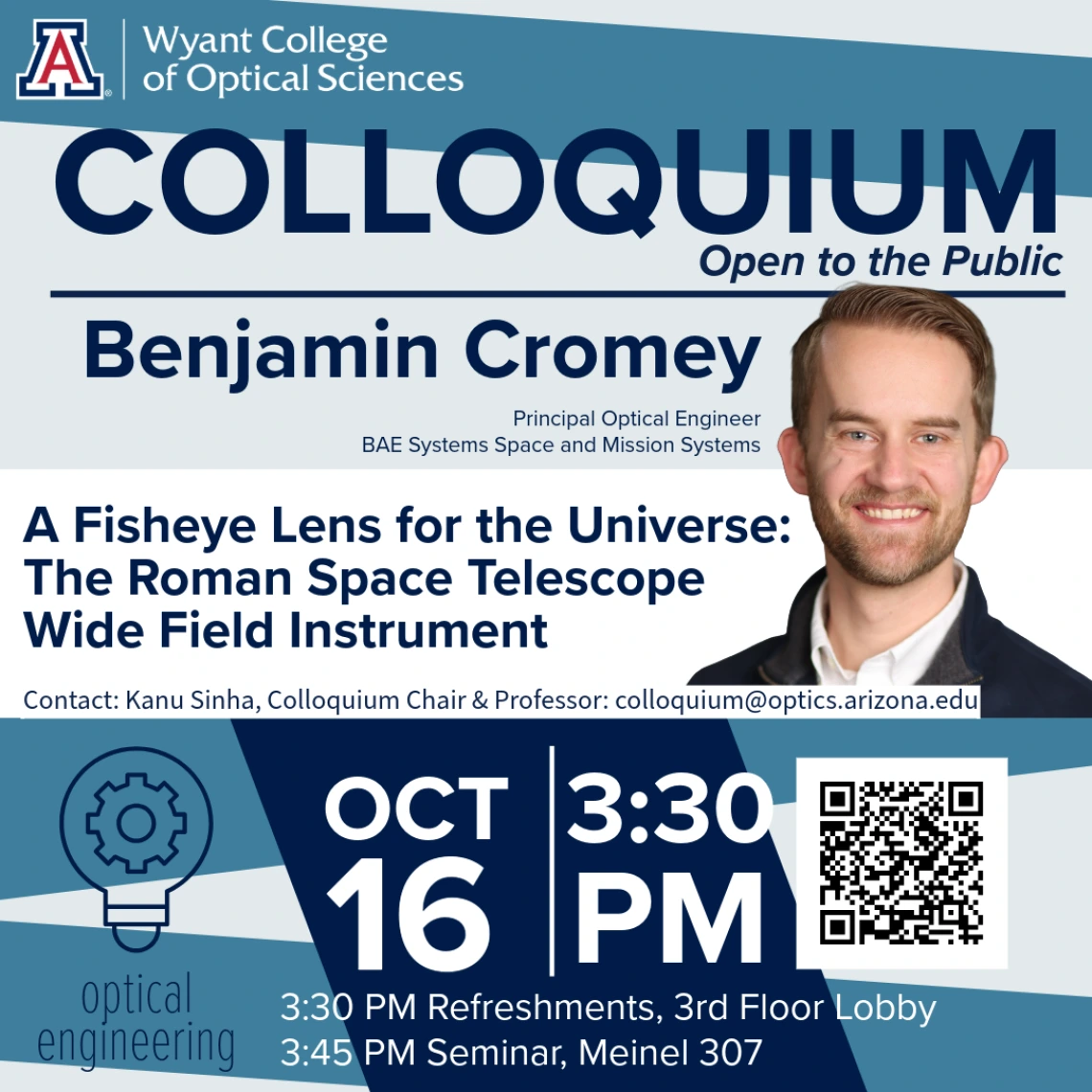
When
Where
Title
A Fisheye Lens for the Universe: The Roman Space Telescope Wide Field Instrument
Abstract
The Roman Space Telescope Wide Field Instrument (WFI) will enable revolutionary advancements in astronomical survey science. Instrument sensitivity spans the 0.5–2.3 µm spectral range with a significant increase in field of view, detector sensitivity, and angular resolution compared to existing observatories. The science of the observatory drove tight stability requirements, and necessitated an array of different optical elements within WFI to switch between imaging at different wavelengths, and using two slitless spectroscopic elements. The science also drove the need for an uncommonly high level of detector calibration, requiring an on-board calibration system supported by unique optics, as well as precise stray light mitigation. In 2024, WFI completed its year-long integration and test campaign as a full instrument, including multiple environmental tests, enabling its performance to be studied in operational temperature conditions. This presentation summarizes several key optical performance aspects of the instrument and how they were verified, including bandpass filter wavefront error, stray light control, and optomechanical alignment. The results demonstrate that the WFI is ready to help transform astrophysics as part of the next NASA flagship observatory.
Bio
Dr. Benjamin Cromey is a Principal Optical Engineer at BAE Systems, Inc, Space and Mission Systems in Boulder, Colorado (formerly known as Ball Aerospace). He received his PhD in Optical Sciences from the University of Arizona in 2020. He served as the Optical Design and Analysis lead on the Roman Space Telescope Wide Field Instrument at BAE Systems, as well as the responsible engineer for the eight filter elements on the instrument. His current work includes exciting R&D efforts to prepare for the NASA Habitable Worlds Observatory. He has authored more than 30 publications, and actively serves the scientific community in a variety of capacities across SPIE, Optica, and the Astronaut Scholarship Foundation.
Can't Join Us In Person?
Register for the Zoom Webinar!
Subscribe to Upcoming Colloquium Announcements
Visit our website for future lecture dates and speaker information
